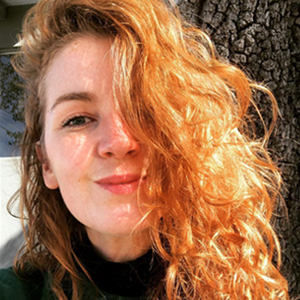
Georgia is an editor and facilitator born in Melbourne, Australia, and based in New York. Currently the ideas editor at Quartz and formerly the editor of Kinfolk magazine, she has fused her background in lifestyle journalism with her passion for emerging science and technology. Georgia brings a quality-of-life focus to the future’s most pressing topics and translates dense, academic subjects into engaging content. She has edited New York Times and Wall Street Journal bestselling books, concepted innovative digital projects, and led award-winning teams of journalists and designers. She often jokes that she makes intelligent people more intelligible. Georgia is also a public speaker, workshop facilitator, and panel moderator. She’s spoken about blockchain at the UN, MC’d the AI stage at Web Summit, and talked about evolutionary psychology at Creative Mornings. She is a member of the WEF’s Future of Computing council, focusing on quantum computing and the long-term impact of supercomputing on both industry and society.
I am most excited to work on projects that… can bring the future to the present, and then encourage the public to be involved in the tomorrow they want to create.
I am looking for partners that can help me… Rather, I am looking for partners I can help! I love working with visionary leaders to translate their ideas, refine their messages, and package them for different audiences of stakeholders.
A moment when I felt most inspired in my work was… when I can find a way to turn awareness into action.
Innovations in my field that I am most excited to work on… include brain-computer interfaces, practical applications of augmented reality, and new genetic technologies—and how these advances can help the communities who could benefit from them the most, not just the wealthy elite.
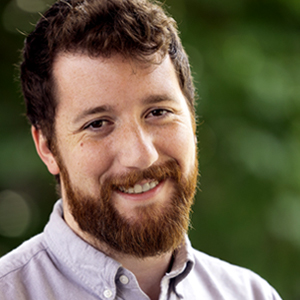
Andrew is the publishing manager at the Belfer Center for Science and International Affairs, a policy-focused think tank at Harvard Kennedy School. He specializes in producing academic works for print and digital publication, designing original data visualizations, and managing the Center’s brand. Andrew is active in the field of nuclear weapons education, serving as teaching assistant for various graduate classes in Harvard’s nuclear deterrence certificate program and giving occasional lectures on technology, history, and cultural issues. He has been published on nuclear issues in The Boston Globe and Arms Control Today, and has spoken on the BBC World Service.
Andrew earned his bachelor’s from Boston University in 2010 and his master’s in international relations from Harvard Extension School in 2018, where he focused on nuclear weapons policy and nonproliferation issues. His thesis explored a unique dimension of Mao Zedong’s ideology and the long-lasting normative influence those beliefs had on China’s future nuclear policy choices.
I am most excited to work on projects that… have the potential to challenge our fundamental assumptions about security and peace.
I am looking for partners that can help me… bring the post-Cold War generations “up to speed” about the nuclear threat, and mobilizing them for change.
A moment when I felt most inspired in my work was… when our Center developed a special guide to the Iran Deal in 2015 and successfully brought it to policymakers in the US, Iran, and Israel. Clarity in combined writing and visualization is a huge value-add!
Innovations in my field that I am most excited to work on… include the ability to rapidly create quality print, graphic, and even video products in response to quickly moving news. Each story is a chance to educate and inspire.
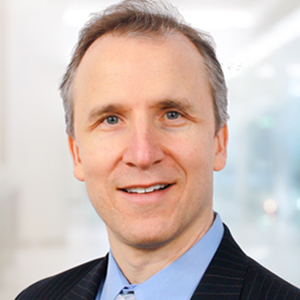
Dave has spent the past 20 years as a financial research analyst on Wall Street, where he analyzed and valued the debt and equity securities of corporations. With a big focus on distressed securities, he gained an appreciation of risk and the importance of being on the lookout for multi-sigma (low frequency but high impact) events. He is a chartered financial analyst (CFA) and holds an MBA in finance from UCLA and a BS in psychology from Johns Hopkins.
I am most excited to work on projects that… allow me to help increase the financial and business communities’ focus on nuclear risk.
I am looking for partners that can help me… harness some of the momentum and methods of impact/ESG (environmental, social, governance) investing and expanding such activities to nuclear risk.
A moment when I felt most inspired in my work was… when I, along with a colleague, found obscure industry data that allowed us to accurately predict a company’s results well ahead of others.
Innovations in my field that I am most excited to work on… include new ways of understanding and quantifying risk and reward.
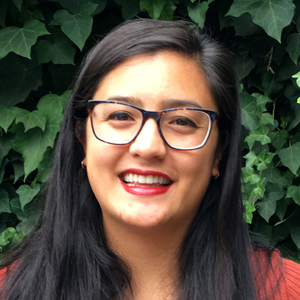
Lauren studies nuclear issues as a postdoc at the Center for International Security and Cooperation at Stanford University. She is broadly interested in the effect of new technologies on nuclear security issues, and leveraging her technical skills as a scientist to inform and contribute to issues in nuclear policy. She received her PhD from the University of California, Berkeley, where she constructed an ultrafast laser apparatus for studying fundamental interactions inside semiconductor materials with unprecedented resolution. Previously, Lauren was a Simons Foundation Postdoctoral Research Fellow at the University of British Columbia, where she studied nuclear disarmament and risk.
I am most excited to work on projects that… broaden the dialogue used to discuss nuclear issues.
I am looking for partners that can help me… engage more people in debates on nuclear policy.
A moment when I felt most inspired in my work was… listening to Ray Acheson speak about her work on the Treaty on the Prohibition of Nuclear Weapons.
Innovations in my field that I am most excited to work on… contribute to ongoing efforts to challenge current narratives surrounding nuclear issues.
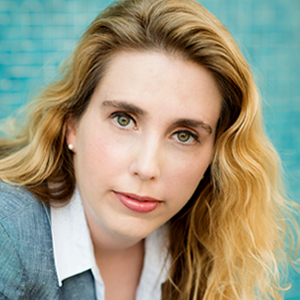
Natasha is founder and CEO of Nuclear Spin Cycle, a consulting firm focused on developing creative content with national security impact. She has been an expert on national security issues for over 20 years, specializing in weapons of mass destruction (WMD), nuclear proliferation, terrorism, and emerging technologies. For over 10 years she worked for the National Defense University, where she advised senior leaders at the Pentagon, taught an elective course to senior military officers on WMD and film, and led “Emergence and Convergence,” a multiyear initiative on the impact of emerging technologies on WMD. Natasha is a published fiction author and writes a science fiction mystery series called the Lara Kingsley Series. She also hosts the Authors of Mass Destruction podcast, which helps writers tell amazing stories while getting the technical details right on WMD and emerging technologies. Natasha holds an MA in international policy from the Middlebury Institute of International Studies and a PhD in international relations from the Fletcher School of Law and Diplomacy at Tufts University.
I am most excited to work on projects that… focus on the intersection of entertainment, science and technology, and national security policymaking.
I am looking for partners that can help me… get engaged with the TV and film industry to produce gripping stories about science and technology and increase public awareness of the national security implications of nuclear weapons, artificial intelligence, and gene editing.
A moment when I felt most inspired in my work was… when a senior policymaker at the White House said she formed a small group to discuss and brainstorm ideas from my paper “WMD in the Digital Age.”
Innovations in my field that I am most excited to work on… include the impact of developments in artificial intelligence and additive manufacturing on nuclear weapons proliferation and deterrence.
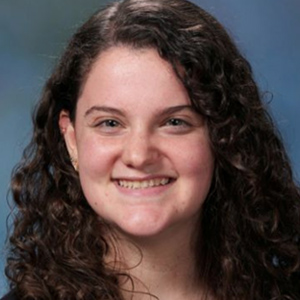
Halley is the finance coordinator for the Bulletin of the Atomic Scientists, where she supports the finance director and the president and CEO with research and program organization and conducts focused research on nuclear energy. Her undergraduate research centered on nuclear deterrence and asymmetric warfare theory, with a focus on the Korean Peninsula and the Pacific Theater more broadly. After earning her bachelor’s degree in history from Bates College, Halley taught English at an international school in Stuttgart, Germany. While there, she supported special education students in their English language acquisition journey.
I am most excited to work on projects that… expect collaboration and outside-the-box thinking to address existential issues.
I am looking for partners that can… help me learn and grow as a communicator, researcher, and problem solver.
A moment when I felt most inspired in my work was… when I worked with undergraduate students to help them understand the import of nuclear threats.
Innovations in my field that I am most excited to work on… connect experts and nonexperts to learn from one another and to understand pressing world issues.







